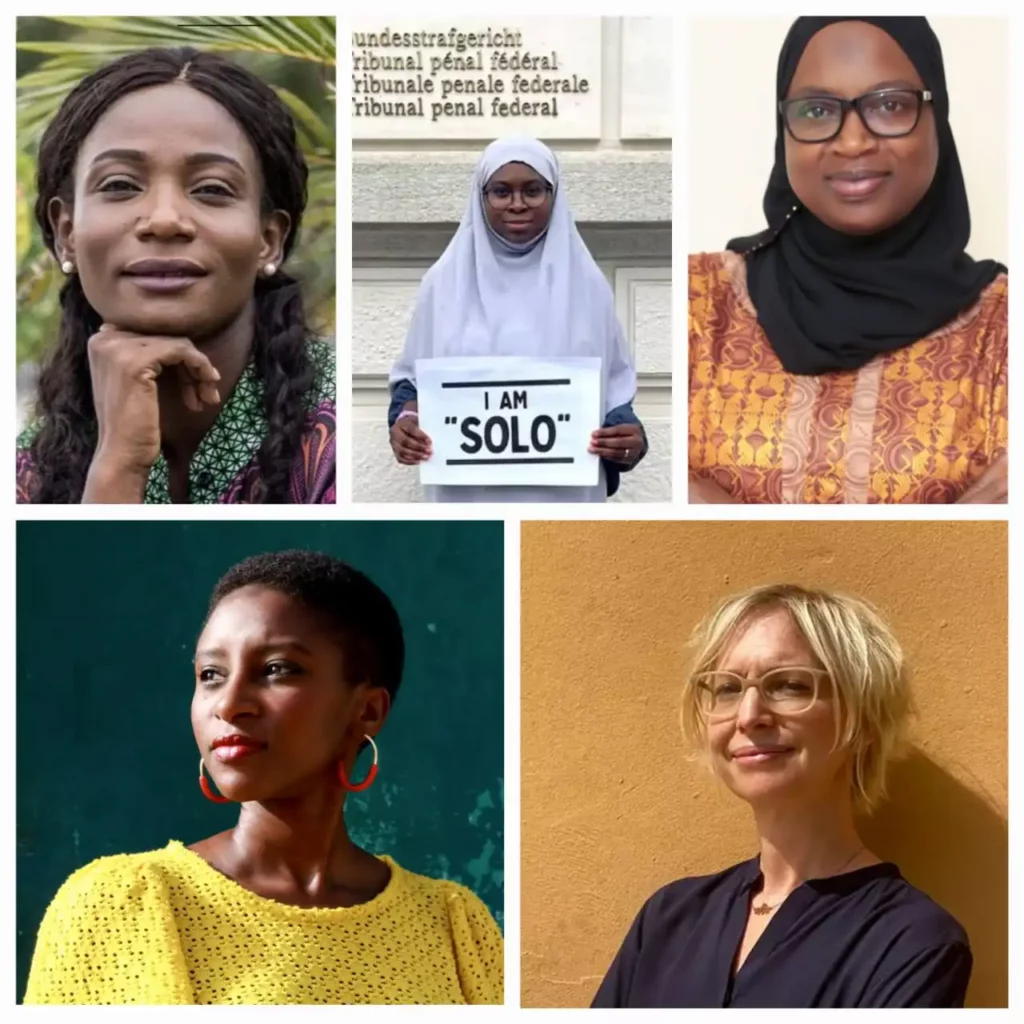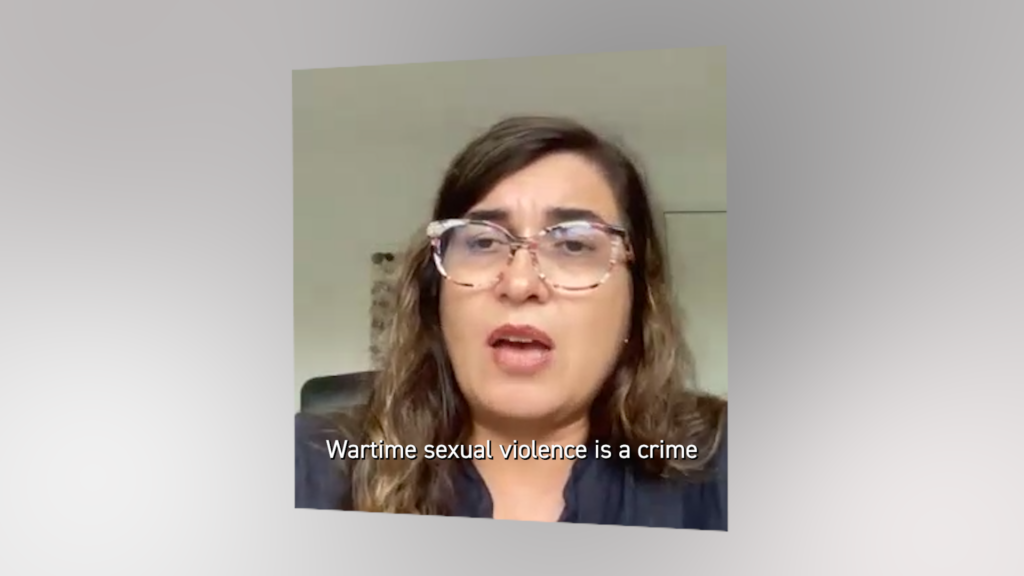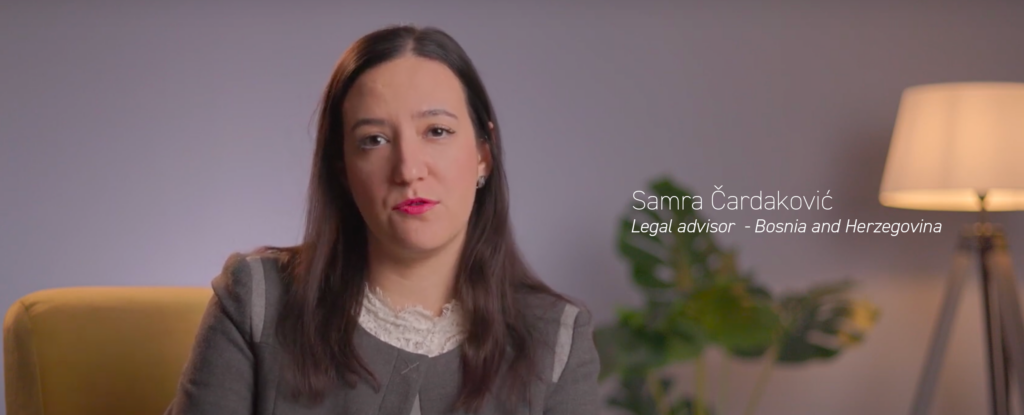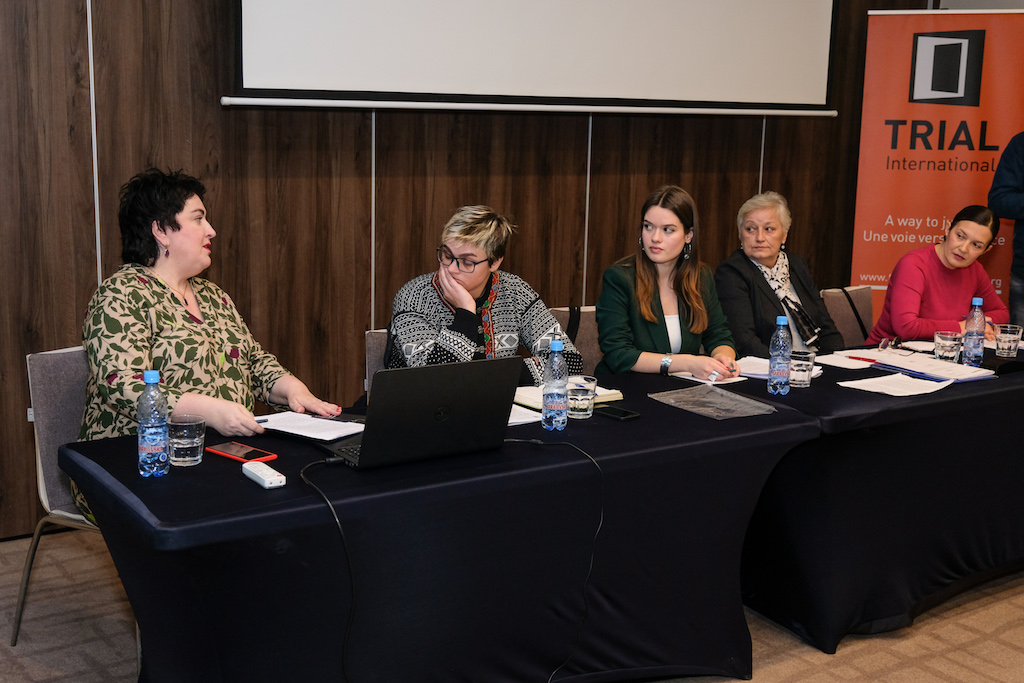Sexual violence: the importance of words
In DRC, Bosnia and Herzegovina and around the world, working with survivors of sexual violence in the midst of war is extremely challenging. The attitude adopted towards the victims and their stories is crucial to support them on the road to justice. The choice of expressions used in the courts is equally important.

Naming the unnamable
All victims of atrocities such as torture or arbitrary detention suffer from subsequent trauma. Recalling these memories and recounting the experienced can be extremely painful, yet it remains essential to establish the facts in a court of law. Counseling is often helpful.
During TRIAL International’s documentation or investigative missions, interviews with survivors of sexual violence are particularly sensitive. Victims must revisit a stigmatizing and taboo act. The crime, which affects sexuality and intimacy, is often referred to in vague and generic terms. In some contexts, the victim does not even possess the appropriate vocabulary to discuss it! But for testimony to have any merit in a court of law, the facts must be presented soberly but clearly. How can the victim then be led to explicitly verbalize the act without rushing them, humiliating them or making them relive the trauma in all its horror?
In its support to survivors, TRIAL International only works with local partners who are duly trained and sensitized to the issue. To this end, the organization adopts the deontology of the International Protocol on the Documentation and Investigation of Sexual Violence in Conflict.
The choice of words in court
While the assault must be clearly described, some details may be irrelevant. Where to draw the line between the information needed for the procedure and respect for privacy? In a report on the stigmatization of victims of wartime sexual violence in Bosnia and Herzegovina, some of the issues that emerge during trials are pointed out. Is it strictly necessary to know how the perpetrator undressed his victim or whether he kissed them? Within the court, these elements most often contribute to the stigmatization and humiliation of victims. All questions must be proportionate and justified.
Finally, the words used to describe the assault in the sentence are also important. Some expressions are problematic. For example, when they contribute to the stigmatization of victims and when they minimize the violent element of the assault. This is the case when rape is referred to as “an attack on a woman’s honor” or “a sexual relationship”.
Victims of sexual violence face many difficulties when they dare to talk about this crime, including in court. Nevertheless, thanks to long-running awareness-raising campaigns, particularly in Bosnia and Herzegovina, some progress can be observed. “We can see it in the decisions handed down by the courts between the beginning of the awareness-raising workshops and today“, notes, for example, Božidarka Dodik, Judge at the Supreme Court of the Federation of Bosnia and Herzegovina. TRIAL International will continue to work in order to ensure that these promising signs become widespread.











